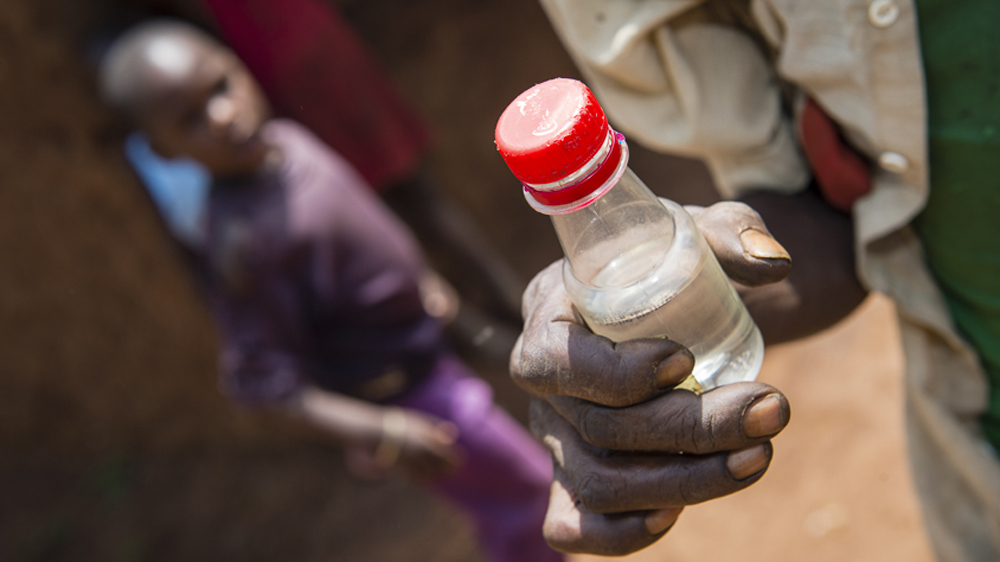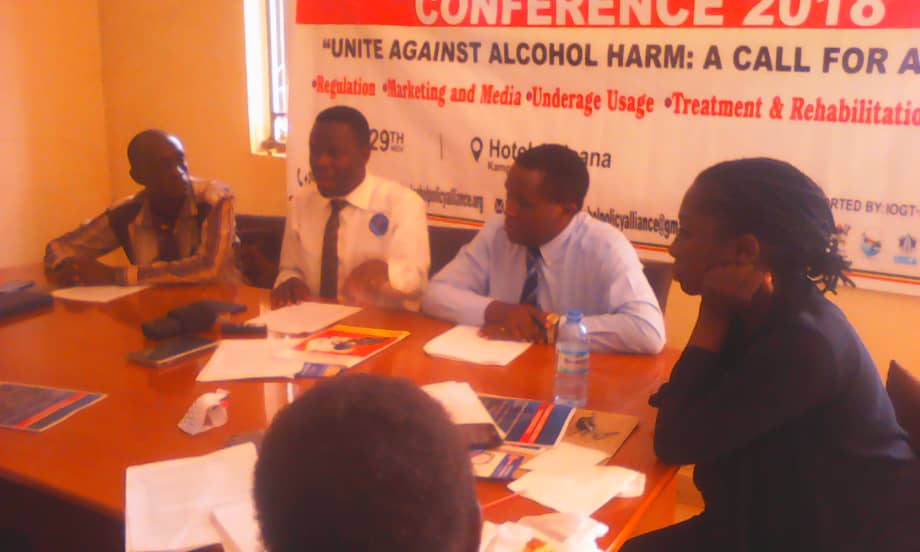
KAMPALA – Local leaders have blamed Government bodies for frustrating their efforts to regulate alcohol use in Uganda.
The leaders said that one of the major challenges they face is the conflict with government bodies.
“It was hard to ban the sachet alcohol which was rather certified by Uganda National Bureau of Standards because there was politicization of alcohol problems, sabotage by the business community, and lack of information by leaders,” Dr Kalema said.
The new report by Uganda Alcohol Policy coalition titled Alcohol status report 2018 was presented by the chairperson of Uganda Alcohol policy, Dr David Kalema today during a press conference held at Hope and Beyond offices In Rubaga division.
Dr Kalema said over three million people are reported to have died as a result of harmful use of alcohol in 2016, a report released by the World Health Organization.
According to the report, “Global status report on alcohol and health 2018,” this represents one in 20 deaths. It said, however, generally, the harmful use of alcohol caused more than five per cent of the global disease burden.
The first Uganda Alcohol Policy conference will be held between 28-29 November under the theme: Unite against Alcohol Harm: A call for action”. The launch of the report will be the major activity of the Conference.

Alcohol status report (2018) further reflects opinions of over 1,052 participants selected from 38 districts regarding alcohol use, harm and alcohol in Uganda.
It also said over three-quarters of these deaths were among men. Of all deaths attributable to alcohol, 28 per cent were due to injuries, such as those from traffic crashes, self-harm and interpersonal violence. It said 21 per cent was due to digestive disorders and 19 per cent due to cardiovascular diseases.
The remaining were due to infectious diseases, cancers, mental disorders and other health conditions. In spite of some positive global trends in the prevalence of heavy episodic drinking and number of alcohol-related deaths since 2010, the overall burden of disease and injuries caused by the harmful use of alcohol is unacceptably high.
The report also said over three-quarters of these deaths were among men. Of all deaths attributable to alcohol, 28 per cent were due to injuries, such as those from traffic crashes, self-harm and interpersonal violence. It said 21 per cent was due to digestive disorders and 19 per cent due to cardiovascular diseases. The remaining were due to infectious diseases, cancers, mental disorders and other health conditions.
In spite of some positive global trends in the prevalence of heavy episodic drinking and number of alcohol-related deaths since 2010, the overall burden of disease and injuries caused by the harmful use of alcohol is unacceptably high.
Kalema said that at least 28% of women and children are the biggest victims of the violations from their husbands or relatives who consume alcohol. 11% of the women were reportedly forced to have sex by men who were under the influence of alcohol. 94% know the dangers related to alcohol use and 57% knew legislations against alcohol.
The report noted that northern region seems to have set the pace by passing resolution banning the sale of alcohol packed in sachets and imported toxic alcoholic drinks.
The coordinator of Uganda Health Alliance communication, Richard Baguma said alcohol is inflicting a lot of harm on the economy because government spends huge sums of money to treat cancer patients and road accidents both as a result of alcohol use.
“If government implements the laws in place such as the Children Act that bars child labour (including working in bars), Road and Traffic Act that bars drink driving and the Noise Pollution Act that mandates closure of open space function at midnight. Also, in the KCCA Local Government (maintenance of law and order) Ordinance 2005, Article 7(4), it is an offence ‘being found drunk on the streets or in a public place’ and punishable by one currency point or two months’ imprisonment then alcohol reduction will become a reality,”Baguma said.
A Professor from School of Public Health, Makerere University, Nazarius Mbona Tumwesigye called on Ugandans to emulate model countries like Iceland and Siranka that are admired globally for being instrumental in regulating alcohol usage in their countries. Iceland was able to reduce the vice from 41% -5%
“Alcohol usage is controlled in most countries unlike in Uganda where people just drink irresponsibly.
Alcohol use in Uganda is possible if communities also join hands because we need everybody not a single hand to tackle the problem,” Prof. Mbona noted.





